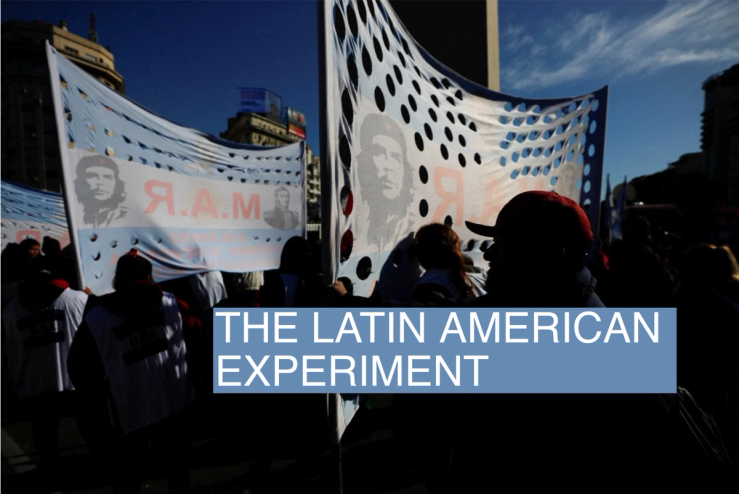The News
A record 54% of Latin Americans wouldn’t mind a non-democratic government so long as it solved their problems, a recent Latinobarómetro poll found. The share of those open to non-democratic governments has increased by 10% in the last two decades, largely on the back of soaring crime and violence across the region. As autocrats find success in combatting the gangs responsible, voters seem increasingly open to them.
SIGNALS
President Nayib Bukele’s violent crackdown on El Salvador’s gangs has led to plummeting murder rates, according to official statistics. However his government’s dragnet approach to arrests — where individuals are detained and tried en masse with little respect for the rule of law — have garnered allegations of massive human rights abuses. Nonetheless, the policy has made him Latin America’s most popular leader, with some 90% of Salvadoreans approving of his administration. Voters in other countries have begun demanding similar approaches to combating crime. Bukele’s surging appeal “is a threat to the region’s democratic success,• 1 ” the Financial Times’ editorial board said.
Financial Times, Latin America must resist the siren call of the strongman
Although Latin Americans overwhelmingly reject the return of the military governments that — at least temporarily — ruled much of the region, they are nonetheless warming to authoritarianism. Almost 70% of respondents to the Latinobarómetro poll believe that democracy in their country isn’t working, while less than half think democracy is the best form of government. “Despite the scars left by juntas and dictators• 2 , citizens across Latin America somehow find themselves tempted by the prospect of authoritarian rule,” writes Eduardo Porter, a Bloomberg columnist covering Latin America.
The score of seven of the region’s countries weakened in The Economist Intelligence Unit’s 2022 Democracy Index, with the sharpest declines in El Salvador and Haiti. Latin America’s median score now sits at just 5.79 out of 10, and only four countries were considered full democracies according to the index. “Latin America is facing numerous challenges,• 3 ” The EIU reported. “Among the most significant is the threat of populism in a region disillusioned with politics and, increasingly, with democracy itself.”
The Economist, Democracy in Latin America weakens again
Citizens’ exasperation with the corruption that has blighted much of the region has led to a wave of populist leaders — who vow to crack down on misconduct — to be elected. These “messianic” leaders have in turn weakened democracy by getting rid of checks and balances and sowing distrust of institutions. “The prescription offered by anti-corruption populism has become worse than the disease it was intended to fight• 4 ,” the head of the International Institute for Democracy and Electoral Assistance wrote.
The New York Times, Look at Latin America. This Is How Democracies Fail.



